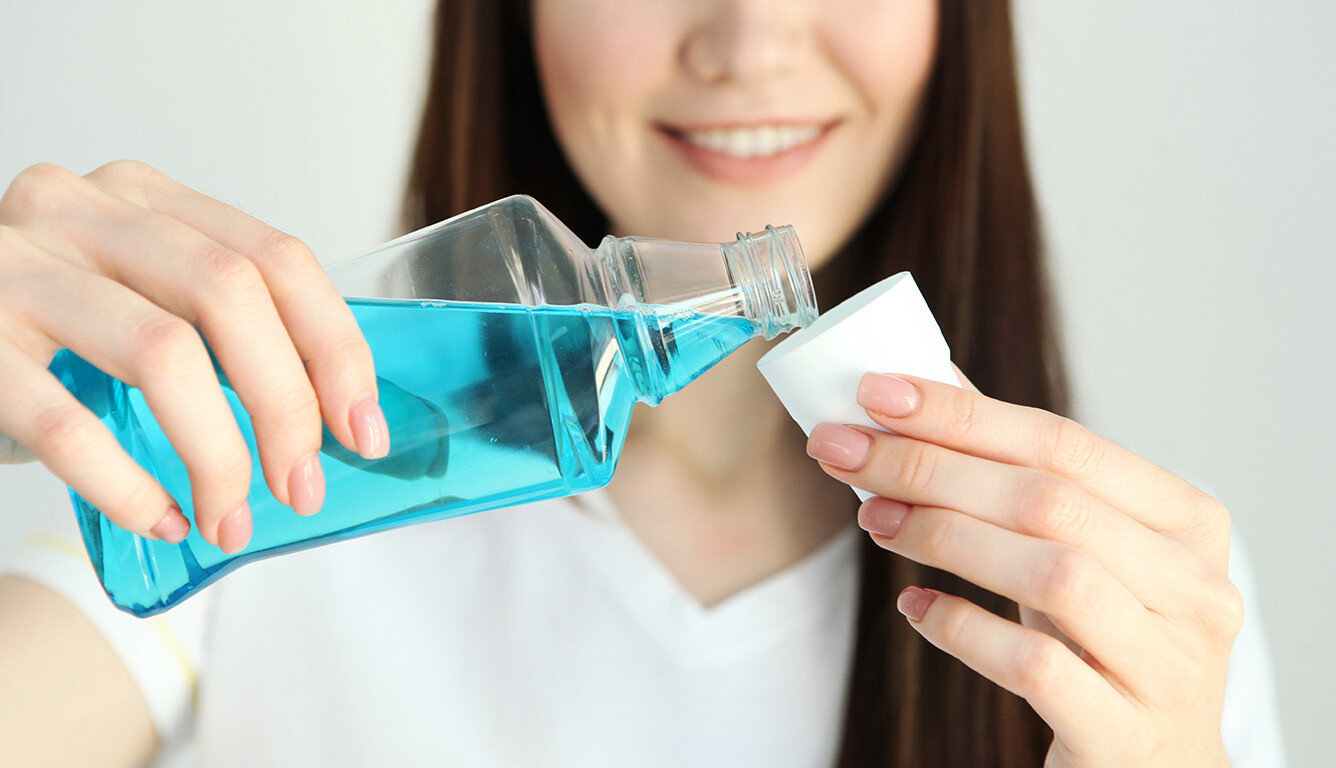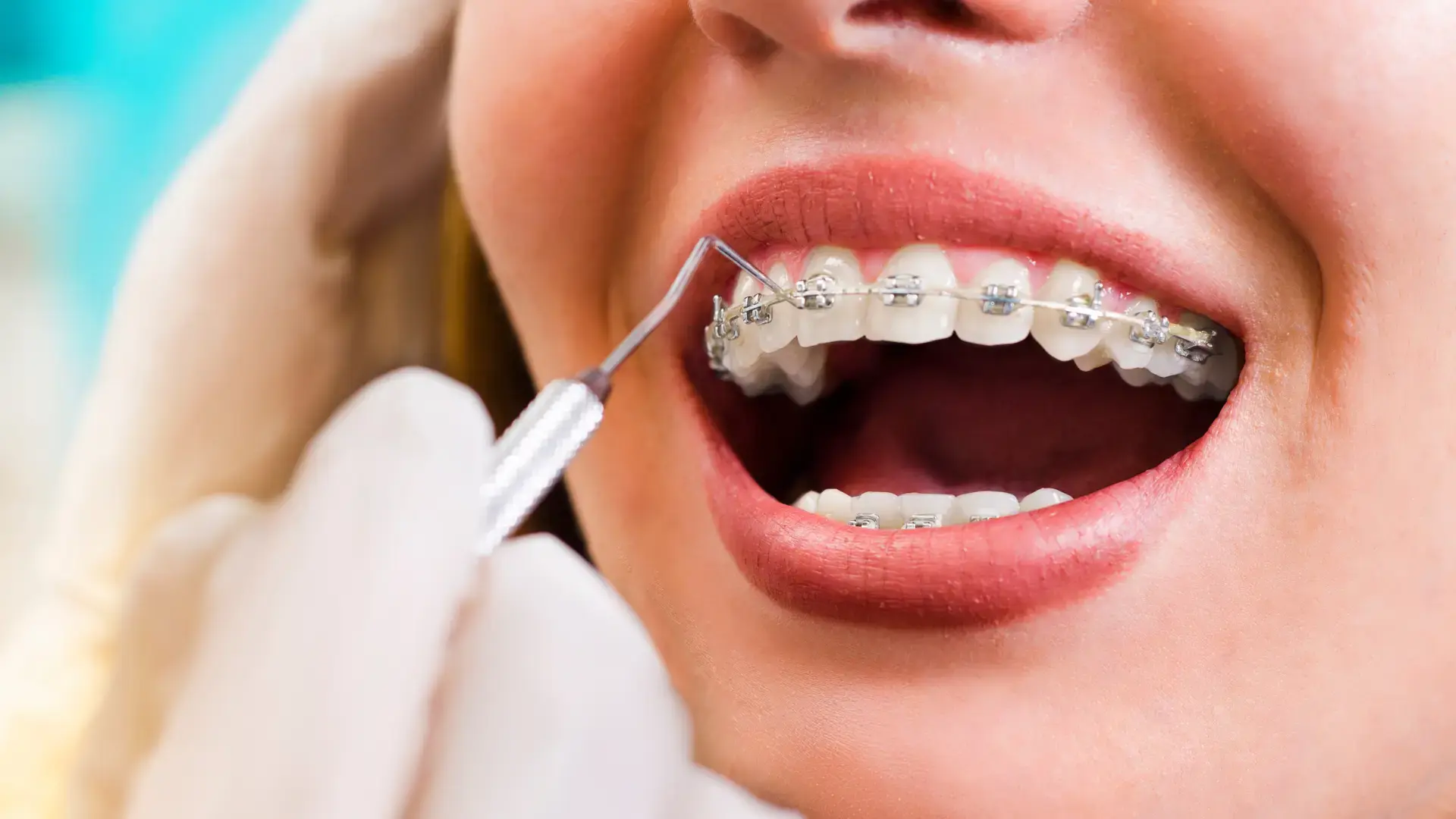How Should You Incorporate Mouthwash into Your Dental Hygiene?

Summarize with AI
You brush, you floss – but do you swish? Mouthwash, often overshadowed by its popular counterparts, is an essential player in the dental health game. But how should you incorporate it effectively?
A Brief History
Before we dive into the how-to, let’s appreciate the why. Mouthwash has been around for centuries. Ancient civilizations used natural antiseptics like saltwater and vinegar solutions to clean their mouths. Fast forward to today, and the market boasts a range of scientifically formulated mouthwashes, each promising a plethora of benefits.
The Correct Way to Use Mouthwash
There are therapeutic mouthwashes that boast medicinal properties and cosmetic ones that primarily aim to reduce bad breath. Knowing the difference is key. If unsure, our clinic is just a call away!
Step-by-Step Guide:
Brush and Floss First: Always begin by brushing and flossing to remove food particles and plaque.
Measure Out: Pour the recommended amount (usually stated on the bottle) into the cap or a cup.
Swish with Purpose: Sip the mouthwash into your mouth and swish vigorously for 30 seconds to a minute.
Don’t Rinse Immediately: After spitting out the mouthwash, avoid drinking or rinsing your mouth for 30 minutes.
Frequency: Use mouthwash at least once daily. If you’re using a therapeutic mouthwash, follow your dentist’s recommendations.
Pro Tip: If you experience a burning sensation, consider switching to an alcohol-free version. Again, consult with our experts for personalized advice.
Benefits of Mouthwash
At first glance, mouthwash might seem like just another layer of freshness after brushing and flossing, but its advantages are numerous and vital. Let’s delve deeper into these perks that extend beyond masking that onion or garlic breath.
Cavity Prevention:
- The Role of Fluoride: Mouthwashes containing fluoride have proven to be a game-changer in dental care. Fluoride not only remineralizes the tooth enamel but also makes teeth more resistant to acid attacks from bacteria, substantially reducing the risk of cavities.
- Complementing Toothpaste: Think of fluoride mouthwash as a sidekick to your toothpaste, filling in the gaps (quite literally!) where brushing might have missed.
Gum Disease Prevention:
- Battle Against Bacteria: The mouth is a playground for bacteria. While many are harmless, some can lead to gum diseases like gingivitis. Enter antiseptic mouthwashes. These power-packed rinses control bacterial growth, preventing the early stages of gum diseases.
- Reducing Inflammation: Regular use can also help in reducing gum inflammation, ensuring they remain firm and healthy.
Whitening Benefits:
- Brighter Smile, Bolder You: We all desire that Hollywood smile, and while mouthwash alone won’t get you there, it’s a step in the right direction. Some mouthwashes contain mild whitening agents that combat tooth staining, making them a great addition to your whitening regimen.
- Tackling Surface Stains: Everyday culprits like coffee, tea, and wine can leave behind surface stains. Mouthwashes with whitening properties can help dissolve these stains, maintaining the brightness of your teeth.
Maintaining Balance:
It’s essential to remember that while mouthwash is beneficial, it should not replace brushing and flossing. Instead, it complements these activities, ensuring you get a well-rounded cleaning. Think of it as the final seal in your oral hygiene routine, locking in the freshness and protection.
Signs You Need Expert Advice
Mouthwash is undeniably an invaluable asset in our dental arsenal, helping keep dental issues at bay. However, it’s crucial to understand its limitations. Here’s when you might need to pick up the phone and chat with a dental professional:
Persistent Bad Breath:
While occasional bad breath after a flavorful meal is standard, constant foul breath can be a red flag. It’s not just about the odor – persistent halitosis could be signaling deeper issues.
Conditions like gum disease, tooth decay, or even certain gastrointestinal issues can be the silent culprits behind that lingering bad breath. It’s always best to rule them out.
Gum Discomfort:
Gums that are consistently red, swollen, or bleed easily shouldn’t be ignored. They’re often the first signs of impending gum diseases like gingivitis or periodontitis.
The buildup of plaque and tartar can irritate the gums, leading to discomfort and more severe issues if left unchecked. Regular dental cleanings can keep this in control, but any sudden or persistent symptoms need professional attention.
Doubts about Mouthwash Choice:
We get it – the dental aisle at the store can be a maze of choices. Fluoride, antiseptic, whitening, alcohol-free – how does one choose?
Your oral needs are as unique as your smile. Whether you have sensitive teeth, are prone to cavities, or just want a brighter smile, our dental team can guide you to the perfect rinse for your requirements.
Changes in Mouth Sensation or Texture:
If you notice changes in the way your mouth feels – maybe it’s unusually dry, or there are white patches that weren’t there before – it’s a potential sign that something’s amiss.
Multiple factors, ranging from certain medications to conditions like oral thrush or other infections, can be the reason behind such changes. Consulting with a professional will help get to the root of the issue.
Don’t Just Rinse—Enhance Your Smile’s Health
Mouthwash plays a pivotal role in amplifying our oral health, but it isn’t the lone ranger. It works in tandem with brushing, flossing, and yes, those much-needed dental check-ups. Your mouth is a window to your overall health, and any anomalies deserve attention. So, if ever in doubt, whether about your rinse or a niggling oral issue, remember: our dental office is always here to guide, advise, and ensure your smile remains as radiant as ever!


